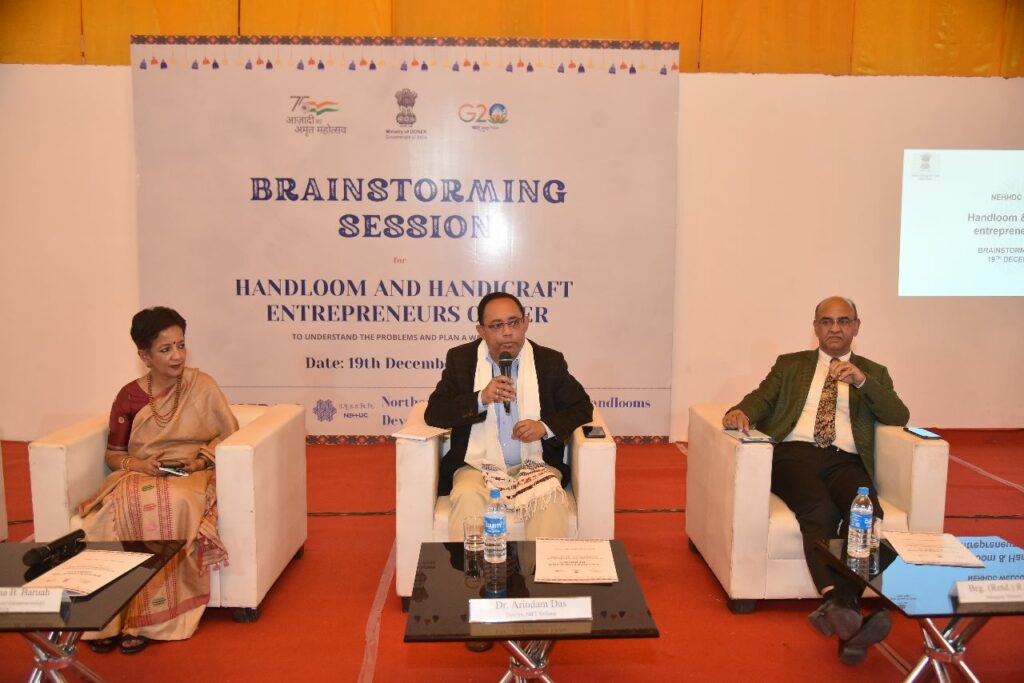
Guwahati: The North East Handicrafts and Handlooms Development Corporation (NEHHDC), for the first time, organised a workshop recently to brainstorm over how to unify the region's small enterprises.
The session's goal was to comprehend the difficulties experienced by the entrepreneurs and to create a plan to suit their demands. The discussion also aimed to identify the needs and gaps in this industry as well as how NEHHDC might be able to fill those gaps.
More than 44 entrepreneurs from the fields of artisanal handicrafts, products and crafts made from water hyacinth, wood, clay, fusion art, sustainability, and waste materials took part in the event.
The meeting was graced by Director NIFT, Shillong Dr. Arindam Saha, MD NEHHDC, Brig. (Retd.) R. K, Singh and Dr. Sriparna B. Baruah, Advisor (Livelihood and Entrepreneurship).

"This is the first of its type effort taken by NEHHDC, where we have brought the entrepreneurs from the handloom industry under a roof to solve their concerns with a comprehensive analysis," NEHHDC Director Brig. R K Singh told Business-Northeast.
With the help of the Government of India, "we will progressively integrate all of the entrepreneurs under our initiatives and programmes to ensure a satisfactory resolution and widespread promotion of local products. We have undoubtedly recognised the entrepreneurs' vital contributions".
The session had discussions on the potential methods for entering the export market and taking on the problems with more pragmatism and objectivity.
A public-private business, a community or organisation for collaboration, or the creation of an "Umbrella Brand" for all handicraft and handloom products to be showcased globally while maintaining the quality of the goods are possible first steps for NER.
The discussion also emphasised the need for innovation in this sector and the requirement to expand the product offering beyond sarees and mekhela sador to include a variety of high-fashion clothes and men's wear.
Additionally, during the discussion, it was emphasised how crucial it is for company owners to respect social compliances, adhere to fair trade standards, pay artisans a minimum wage, and provide them with the barest of facilities. In particular, it was noted how important it is to maintain the objects' quality and finish.